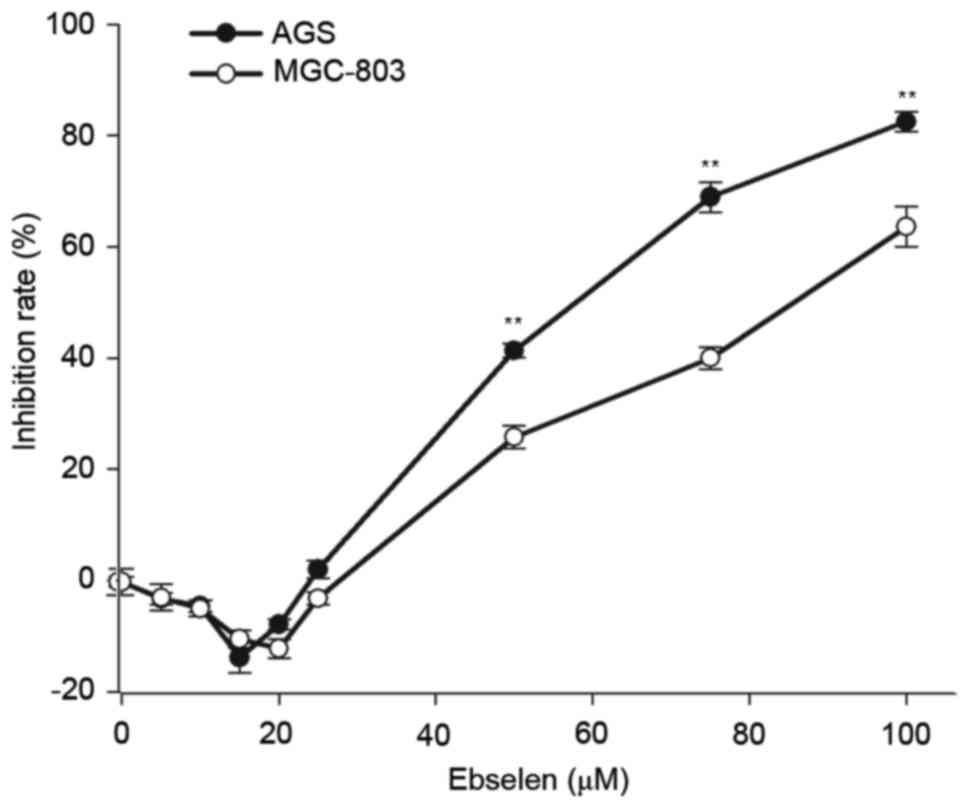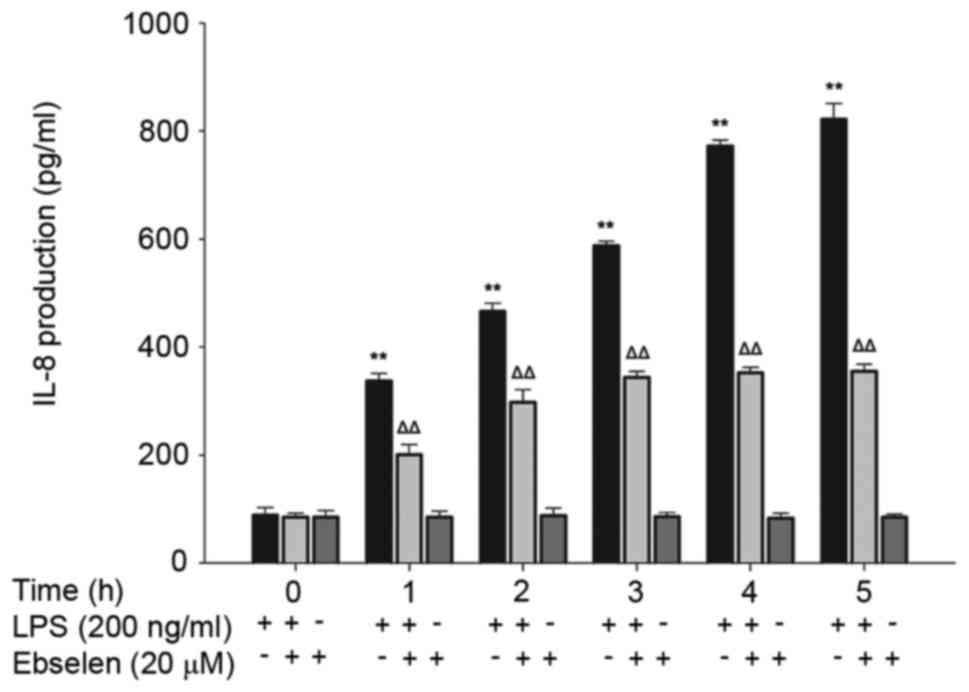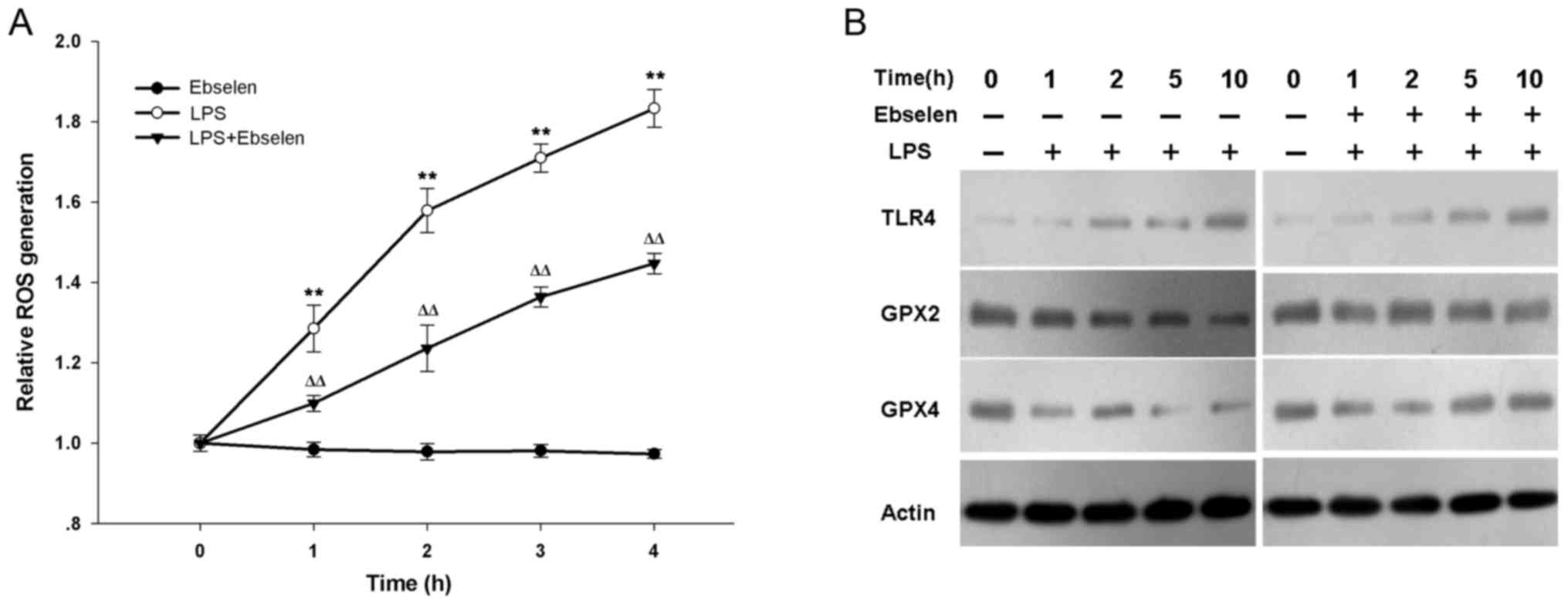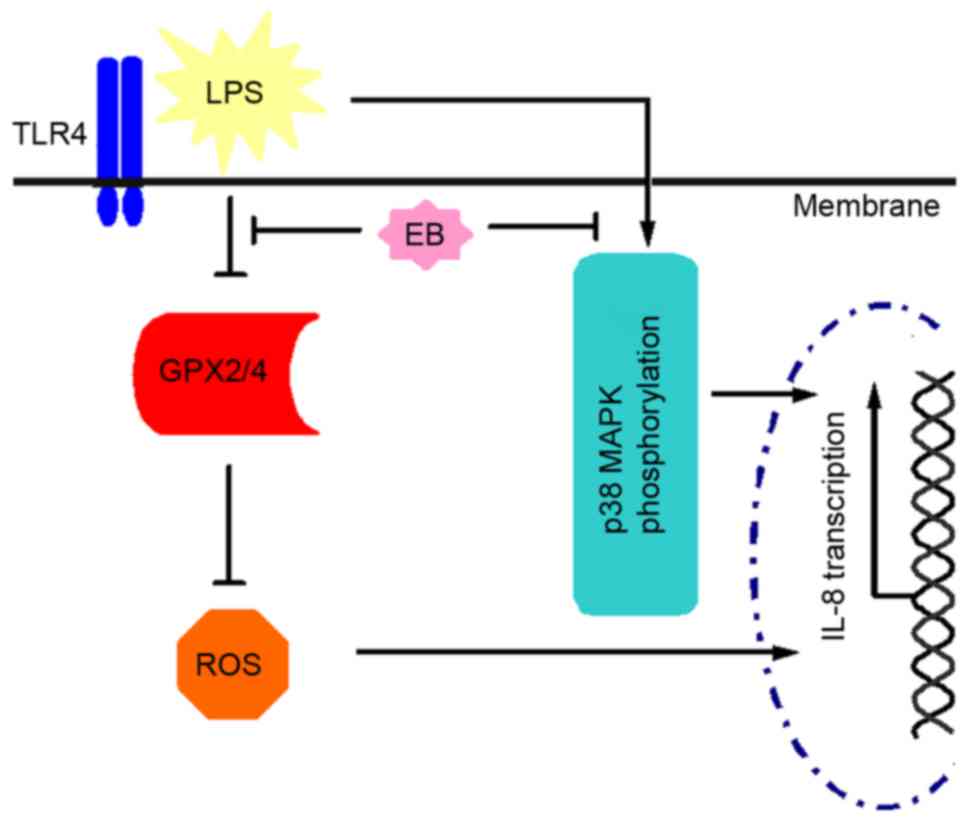|
1
|
Peek RM Jr and Blaser MJ: Helicobacter
pylori and gastrointestinal tract adenocarcinomas. Nat Rev
Cancer. 2:28–37. 2002. View
Article : Google Scholar : PubMed/NCBI
|
|
2
|
Schistosomes, liver flukes and
Helicobacter pylori. IARC working group on the evaluation of
carcinogenic risks to humans; Lyon, 7–14 June 1994. IARC Monogr
Eval Carcinog Risks Hum. 61:1–241. 1994.PubMed/NCBI
|
|
3
|
Hynes SO, Ferris JA, Szponar B, Wadström
T, Fox JG, O'Rourke J, Larsson L, Yaquian E, Ljungh A, Clyne M, et
al: Comparative chemical and biological characterization of the
lipopolysaccharides of gastric and enterohepatic
Helicobacter. Helicobacter. 9:313–323. 2004. View Article : Google Scholar : PubMed/NCBI
|
|
4
|
Esmaeilli D, Mobarez AM, Salmanian AH and
Hosseini AZ: Bioactivity and immunological evaluation of LPS from
different serotypes of Helicobacter pylori. Iran J Microbio.
5:142–146. 2013.
|
|
5
|
Ogawa T, Asai Y, Sakai Y, Oikawa M, Fukase
K, Suda Y, Kusumoto S and Tamura T: Endotoxic and immunobiological
activities of a chemically synthesized lipid A of Helicobacter
pylori strain 206-1. FEMS Immunol Med Microbiol. 36:1–7. 2003.
View Article : Google Scholar : PubMed/NCBI
|
|
6
|
Lepper PM, Triantafilou M, Schumann C,
Schneider EM and Triantafilou K: Lipopolysaccharides from
Helicobacter pylori can act as antagonists for Toll-like
receptor 4. Cell Microbiol. 7:519–528. 2005. View Article : Google Scholar : PubMed/NCBI
|
|
7
|
Marthandan S, Hyland P, Pawelec G and
Barnett Y: An investigation of the effects of the antioxidants,
ebselen or N-acetyl cysteine on human peripheral blood mononuclear
cells and T cells. Immun Ageing. 10:72013. View Article : Google Scholar : PubMed/NCBI
|
|
8
|
Haddad el-B, McCluskie K, Birrell MA,
Dabrowski D, Pecoraro M, Underwood S, Chen B, De Sanctis GT, Webber
SE, Foster ML and Belvisi MG: Differential effects of ebselen on
neutrophil recruitment, chemokine and inflammatory mediator
expression in a rat model of lipopolysaccharide-induced pulmonary
inflammation. J Immunol. 169:974–982. 2002. View Article : Google Scholar : PubMed/NCBI
|
|
9
|
Bernardová K, Babica P, Marsálek B and
Bláha L: Isolation and endotoxin activities of lipopolysaccharides
from cyanobacterial cultures and complex water blooms and
comparison with the effects of heterotrophic bacteria and green
alga. J Appl Toxicol. 28:72–77. 2008. View
Article : Google Scholar : PubMed/NCBI
|
|
10
|
Uno K, Kato K, Atsumi T, Suzuki T,
Yoshitake J, Morita H, Ohara S, Kotake Y, Shimosegawa T and
Yoshimura T: Toll-like receptor (TLR)2 induced through TLR4
signaling initiated by Helicobacter pylori cooperatively
amplifies iNOS induction in gastric epithelial cells. Am J Physiol
Gastrointest Liver Physiol. 293:G1004–G1012. 2007. View Article : Google Scholar : PubMed/NCBI
|
|
11
|
Chochi K, Ichikura T, Kinoshita M, Majima
T, Shinomiya N, Tsujimoto H, Kawabata T, Sugasawa H, Ono S, Seki S
and Mochizuki H: Helicobacter pylori augments growth of
gastric cancers via the lipopolysaccharide-toll-like receptor 4
patyway whereas its lipopolysaccharide attenuates antitumor
activities of human mononuclear cells. Clin Cancer Res.
14:2909–2917. 2008. View Article : Google Scholar : PubMed/NCBI
|
|
12
|
Kawahara T, Teshima S, Oka A, Sugiyama T,
Kishi K and Rokutan K: Type I Helicobacter pylori
lipopolysaccharice stimulates toll-like receptor 4 and activates
mitogen oxidase 1 in gastric pit cell. Infect Immun. 69:4382–4389.
2001. View Article : Google Scholar : PubMed/NCBI
|
|
13
|
Smith SM, Moran AP, Duggan SP, Ahmed SE,
Mohamed AS, Windle HJ, O'Neill LA and Kelleher DP: Tribbles 3: A
novel regulator of TLR2-mediated signaling in response to
Helicobacter pylori lipopolysaccharide. J Immunol.
186:2462–2471. 2011. View Article : Google Scholar : PubMed/NCBI
|
|
14
|
Azad GK, Singh V, Mandal P, Singh P, Golla
U, Baranwal S, Chauhan S and Tomar RS: Ebselen induces reactive
oxygen species (ROS)-mediated cytotoxicity in Saccharomyces
cerevisiae with inhibition of glutamate dehydrogenase being a
target. FEBS Open Bio. 4:77–89. 2014. View Article : Google Scholar : PubMed/NCBI
|
|
15
|
Parnham MJ and Sies H: The early research
and development of ebselen. Biochem Pharmacol. 86:1248–1253. 2013.
View Article : Google Scholar : PubMed/NCBI
|
|
16
|
Yoshizumi M, Fujita Y, Izawa Y, Suzaki Y,
Kyaw M, Ali N, Tsuchiya K, Kagami S, Yano S, Sone S and Tamaki T:
Ebselen inhibits tumor necrosis factor-alpha-induced c-Jun
N-terminal kinase activation and adhesion molecule expression in
endothelial cells. Exp Cell Res. 292:1–10. 2004. View Article : Google Scholar : PubMed/NCBI
|
|
17
|
Yoshizumi M, Kogame T, Suzaki Y, Fujita Y,
Kyaw M, Kirima K, Ishizawa K, Tsuchiya K, Kagami S and Tamaki T:
Ebselen attenuates oxidative stress-induced apoptosis via the
inhibition of the c-Jun N-terminal kinase and activator protein-1
signalling pathway in PC12 cells. Br J Pharmacol. 136:1023–1032.
2002. View Article : Google Scholar : PubMed/NCBI
|
|
18
|
Sharma V, Tewari R, Sk UH, Joseph C and
Sen E: Ebselen sensitizes glioblastoma cells to tumor necrosis
Factor (TNFalpha)-induced apoptosis through two distinct pathways
involving NF-kappaB downregulation and Fas-mediated formation of
death inducing signaling complex. Int J Cancer. 123:2204–2212.
2008. View Article : Google Scholar : PubMed/NCBI
|
|
19
|
Yang CF, Shen HM and Ong CN: Ebselen
induces apoptosis in HepG-2 cells through rapid depletion of
intracellular thiols. Arch Biochem Biophys. 374:142–152. 2000.
View Article : Google Scholar : PubMed/NCBI
|
|
20
|
Luo Z, Liang L, Sheng J, Pang Y, Li J,
Huang L and Li X: Synthesis and biological evaluation of a new
series of ebselen derivatives as glutathione peroxidase (GPX)
mimics and cholinesterase inhibitors against Alzheimer's disease.
Bioorg Med Chem. 22:1355–1361. 2014. View Article : Google Scholar : PubMed/NCBI
|
|
21
|
Wang X, Yun JW and Lei XG: Glutathione
peroxidase mimic ebselen improves glucose-stimulated insulin
secretion in murine islets. Antioxid Redox Signal. 20:191–203.
2014. View Article : Google Scholar : PubMed/NCBI
|



















